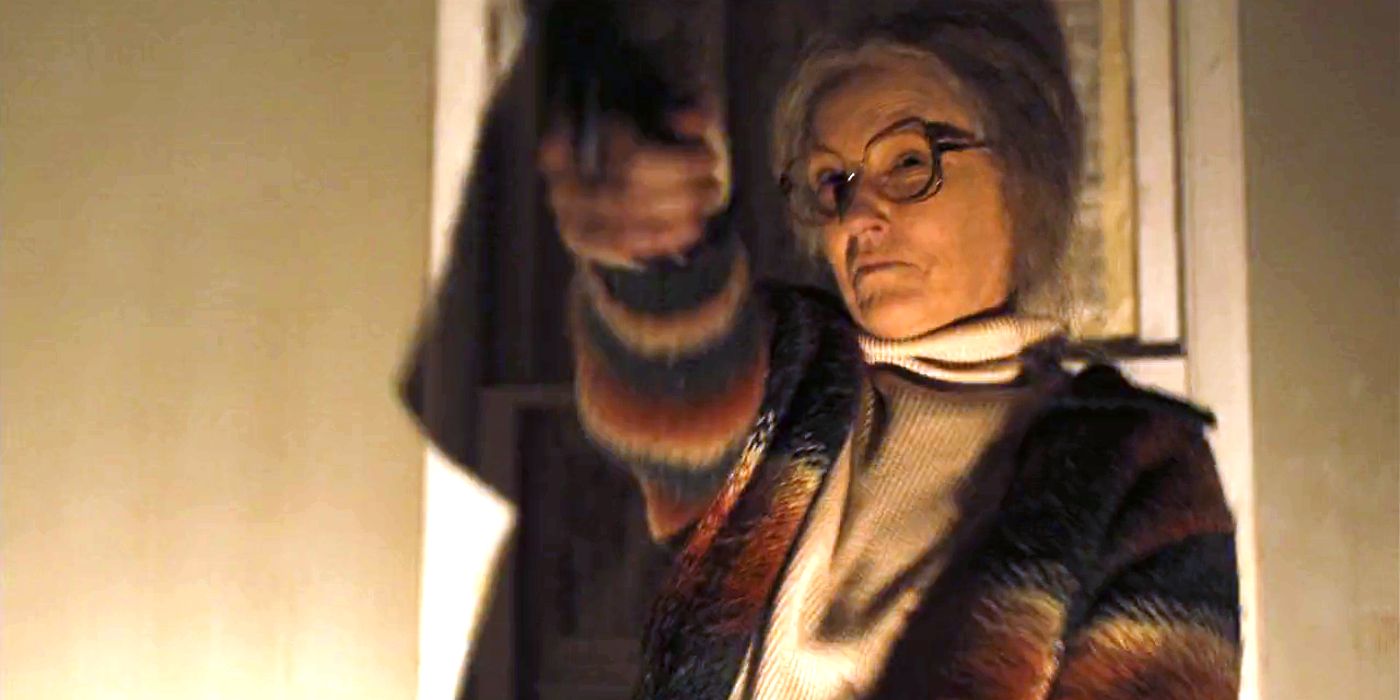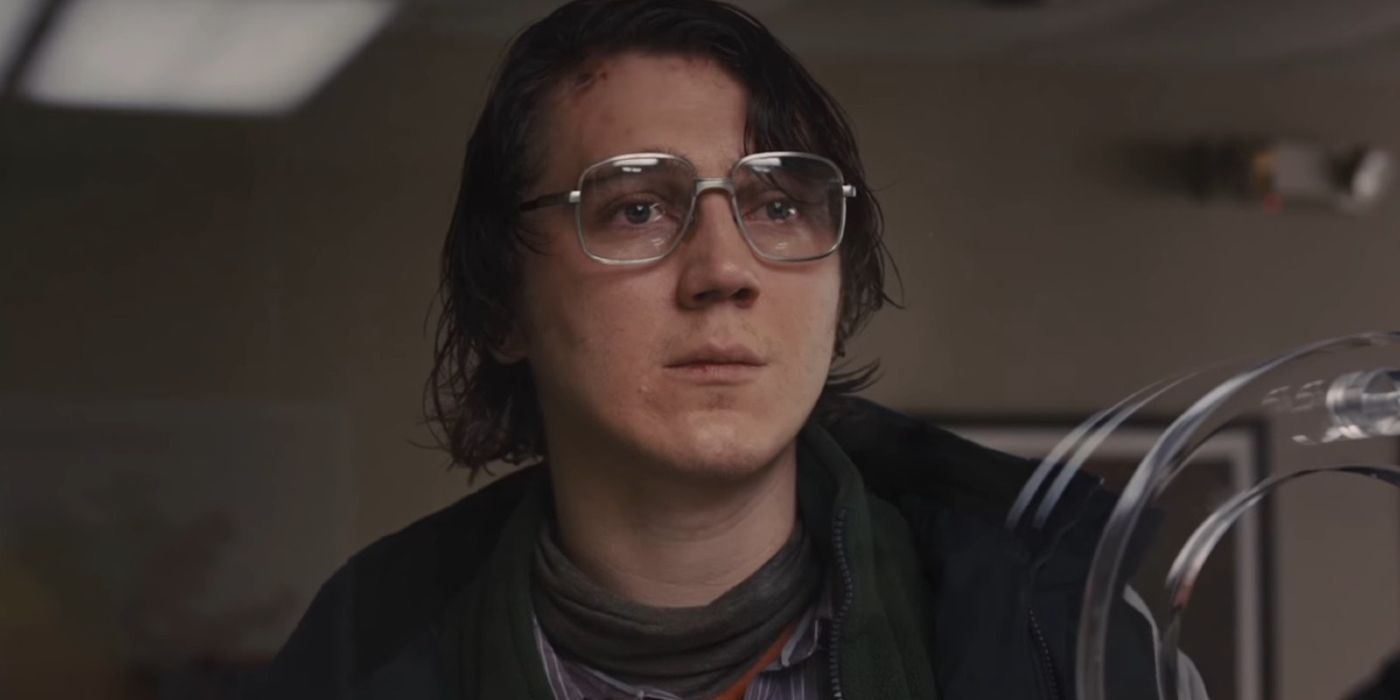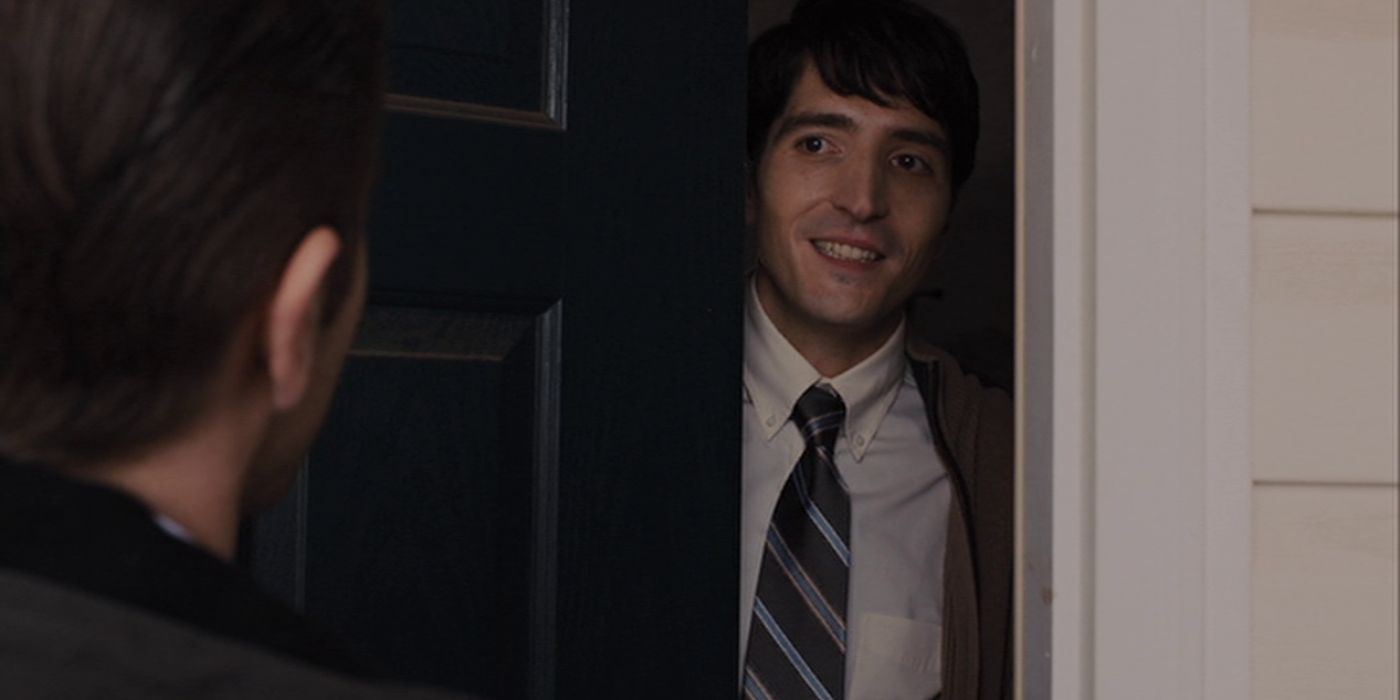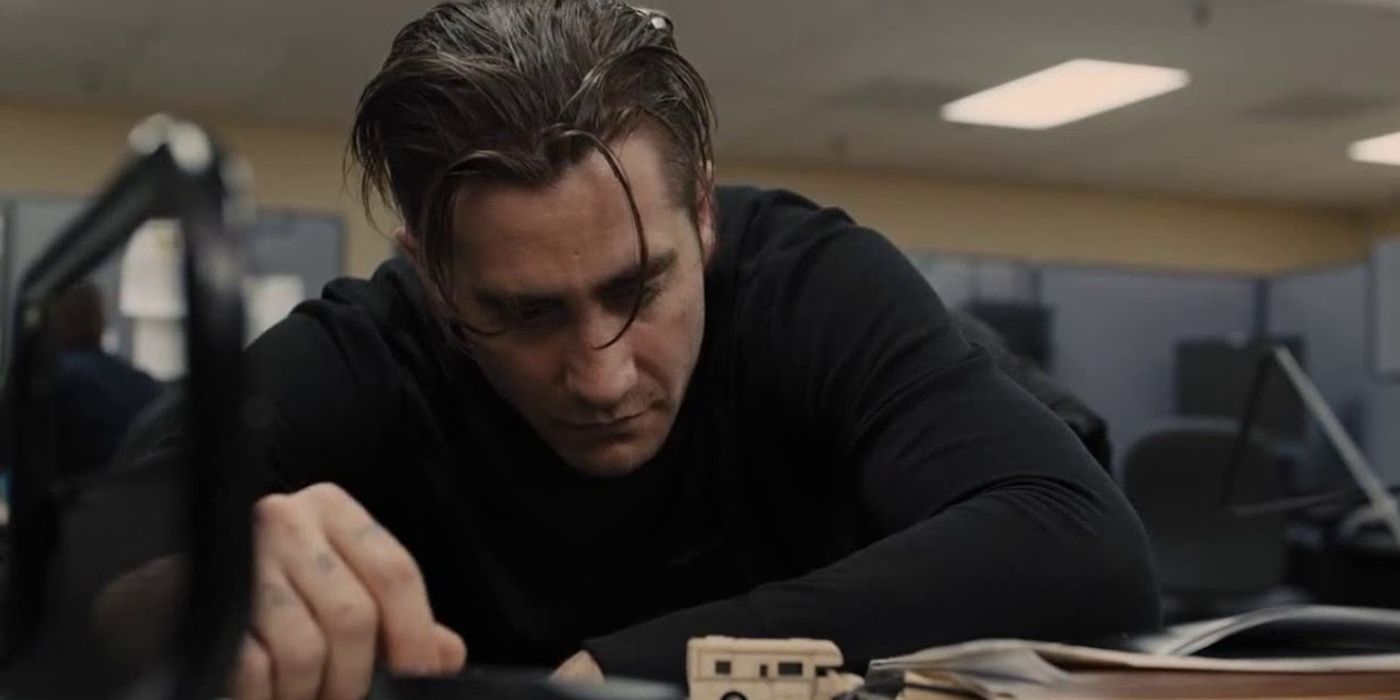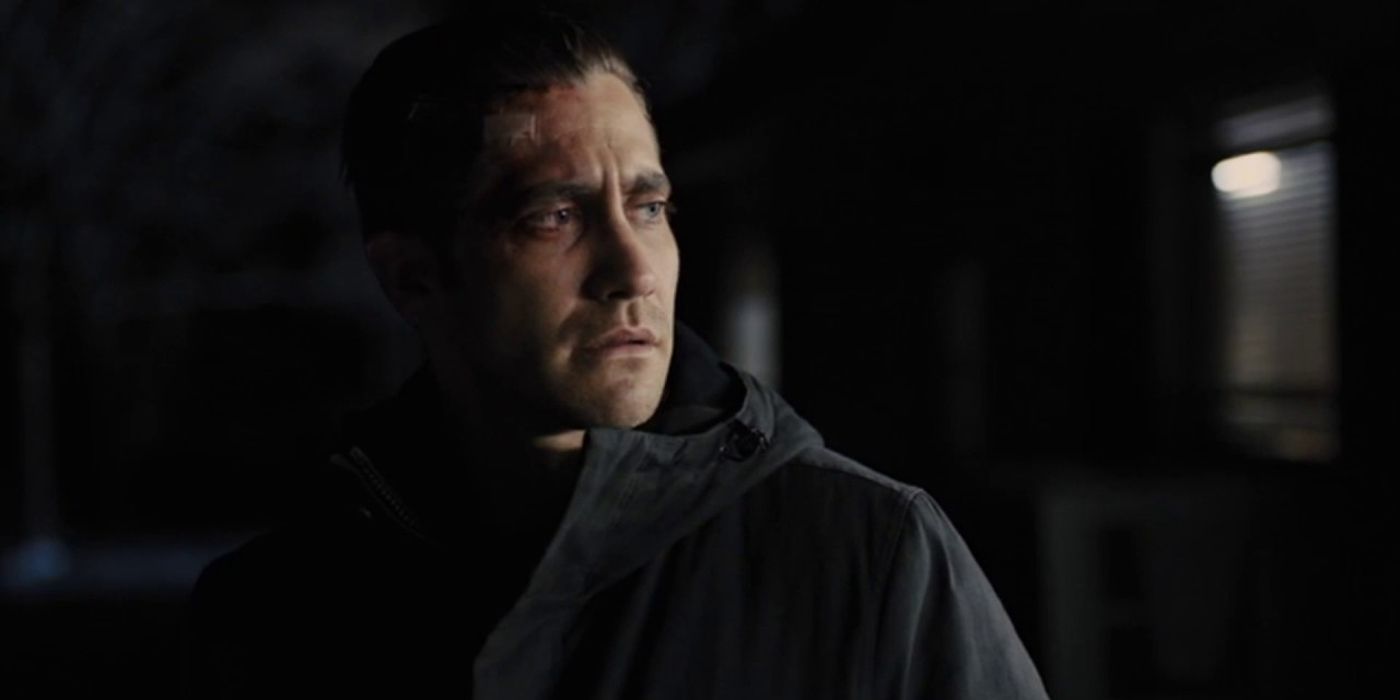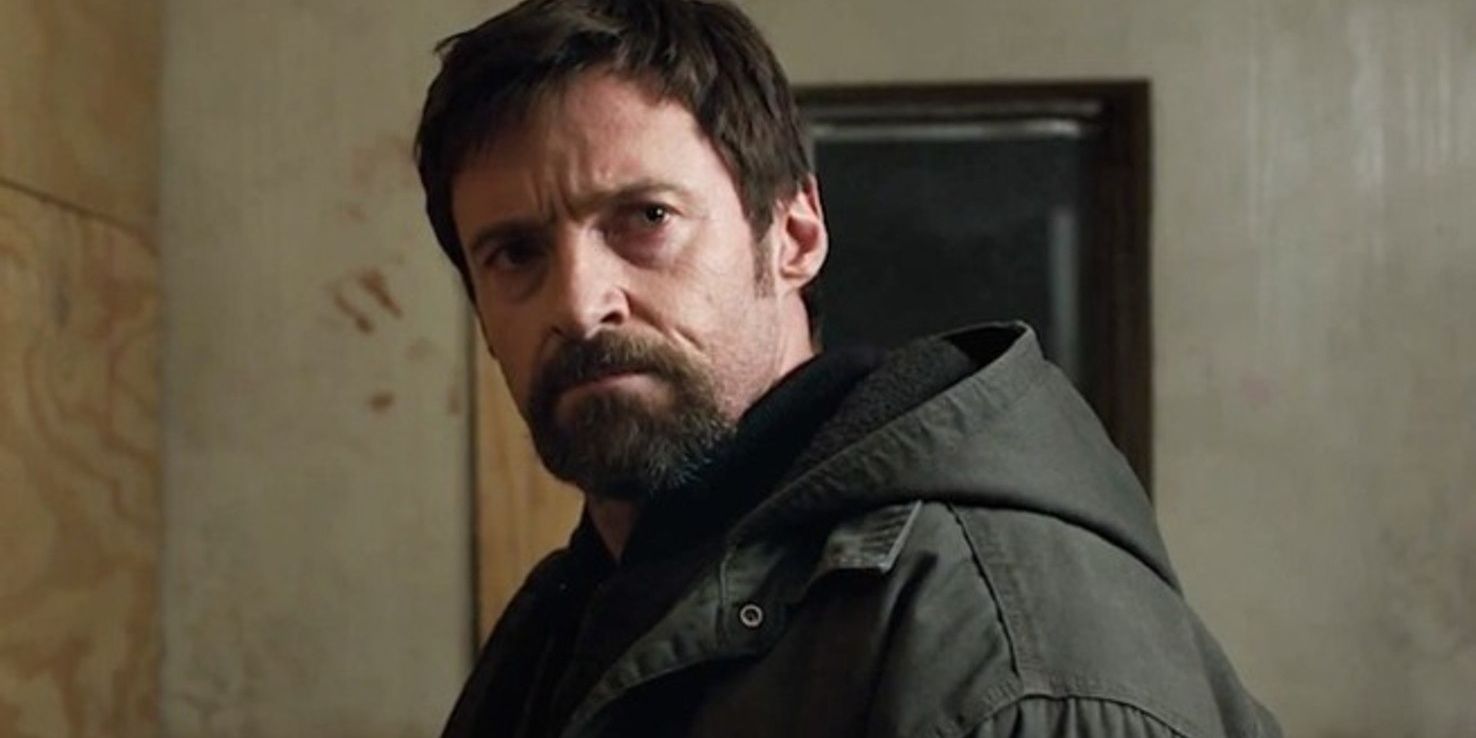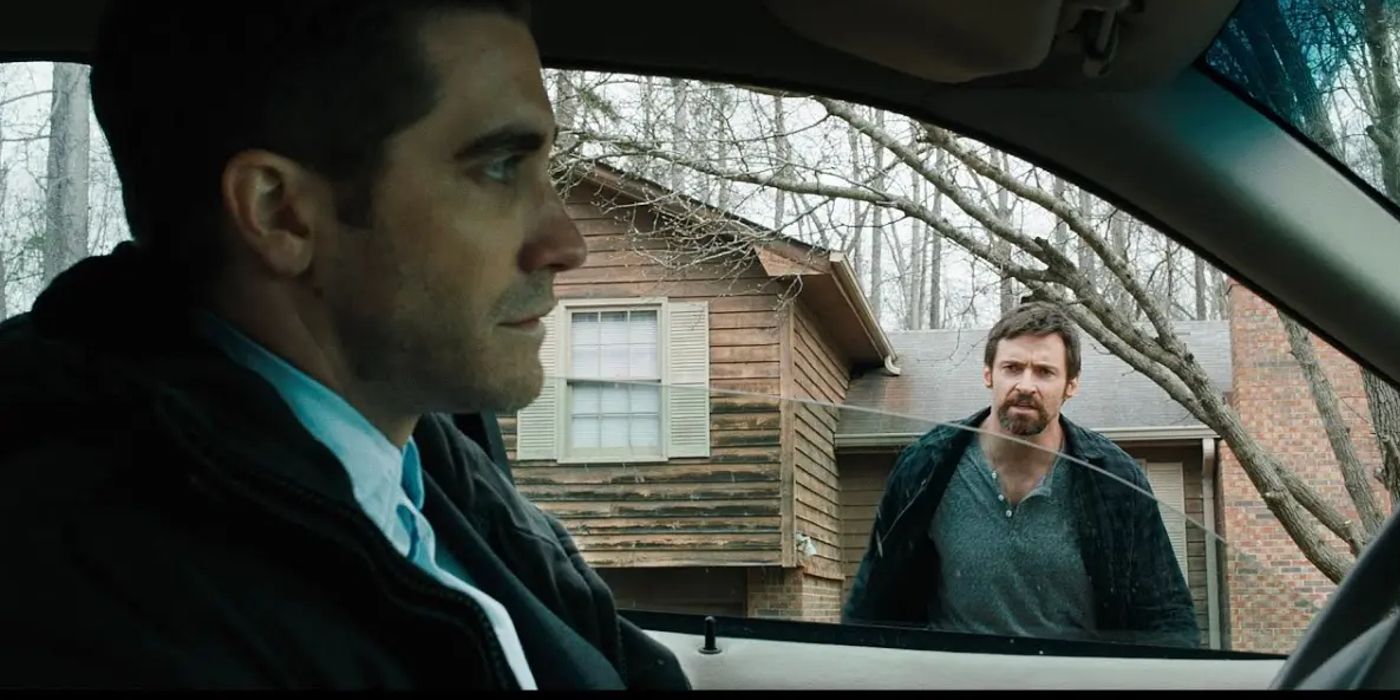[ad_1]
The Prisoners ending adds to the highly complex and dark nature of the detective-thriller from Denis Villeneuve. The film tells the gut-wrenching story of a family Thanksgiving dinner that ends with two young girls disappearing. The film’s central two characters, Keller Dover and Detective Loki played by Hugh Jackman and Jake Gyllenhaal respectively, are then taken on a complex ride as both try to figure out the mystery through their own means.
Keller Dover, the father of Anna, one of the missing children, goes to a dark place in Prisoners, even kidnapping and torturing a person of his own, Alex Jones, in his search for answers. Eventually, Dover finds out that Alex Jones is actually Barry Milland and was kidnapped by his “mother” Holly Jones, who has taken Keller’s daughter and her friend Joy. Prisoners’ ending, which even had an alternate conclusion at one point in production, sees Keller left in a pit beneath Holly’s house after Loki exposes Holly and saves Anna. Prisoners reaches this endpoint through a series of twists and turns and leaves its ending purposely ambiguous.
Why Holly Jones Was Kidnapping Children
One of the biggest questions the Prisoners ending leaves is why Holly Jones, played by Melissa Leo, and her husband prior to his disappearance were kidnapping children in the first place. While Prisoners does answer this, the film’s complex emotional story can allow certain aspects to become lost beneath the hard-hitting way the movie is presented. Also, as Holly is introduced early in the film, things that are revealed about her when she is “innocent” in the eyes of the audience can be forgotten once the reveal of her true nature comes to light.
Throughout the film, it is revealed that Holly and her husband adopted Alex Jones, played by Paul Dano of recent The Batman fame, after the death of their own son to cancer. Throughout the film, Alex is shown to be intellectually disabled, having the IQ of a 10-year-old. It is revealed that this disability comes from the trauma of his own kidnapping by Holly, with her reasoning revealed to Keller later after he figures out Holly’s crimes. Holly reveals to Keller that, in revenge against God for allowing their son to die of cancer, she and her husband began kidnapping children of Christian families so that these families would feel a similar crisis of faith that they felt.
This war on God was carried out over decades with Alex Jones being one victim. Another victim is also revealed throughout the film, a man named Bob Taylor, played by superhero movie regular David Dastmalchian. Anna and Joy are just two of Holly’s latest victims, as the Dovers and Birchs are two Christian families. Despite her husband’s disappearance, Holly continued their “war” by kidnapping the two children and sending Keller and his family, alongside the Birchs, down their own crisis of faith.
How Alex Jones Was Involved
Throughout Prisoners, Dano’s Alex Jones is one of the central characters in some harrowing ways. Firstly, his intellectual disability puts him as one of the film’s red herrings, with Alex often making comments that seemingly implicate him in Anna and Joy’s kidnapping such as telling Keller: “They didn’t cry until I left them.” This causes Keller to torture Alex throughout the movie. However, the film reveals that Alex was not involved in the actual kidnapping of the girls, he was only present due to living in the same house as Holly.
As Alex, often considered one of Paul Dano’s best roles and movies, is a kidnapping victim of Holly’s himself and is played off as her adoptive son, he was present in the house when Anna and Joy were taken. Before this, Alex took the girls for a joyride in his RV through seemingly innocent means due to his 10-year-old mental state, and the girls were only taken by Holly after returning to Alex’s house. This is why Alex says the line to Keller, which the latter wrongly believes proves his guilt. In reality, Alex was also a victim and his trauma and mental disabilities put him on the wrong side of a grieving father.
Why Bob Taylor Implicated Himself
Another of Holly’s kidnapping victims is Bob Taylor. In the film, Taylor is used as another red herring who breaks into the Dovers’ house, is found with Anna and Joy’s clothes covered in blood, and confesses to the kidnappings before committing suicide. In the scene in which Prisoners, directed by sci-fi movie master Denis Villeneuve, reveals that Holly was responsible for the kidnapping, it is also revealed that Taylor was a former victim of the Jones’ that actually escaped, and Holly forgot he existed until he appeared in the news. Taylor, suffering from similar trauma from his experiences as Alex, began emulating his memories of his own kidnapping by Holly and her husband.
As Mr. Jones was obsessed with mazes, Taylor’s traumatic childhood caused his own mind to break, and become obsessed with them himself, explaining the writing on the walls of his home. Because of Taylor’s mental state, it can be argued that he was fantasizing about kidnapping children to emulate Mr. Jones. This explains the seeming plot hole of why he would implicate himself, despite not participating in the kidnapping of Anna and Joy himself.
How The Priest’s Murder Is Significant
One other plot point is the investigation of Father Dunn by Loki, similarly ranked amongst Jake Gylenhaal’s best performances alongside Dano’s. In the film, Loki visits a local priest and finds a decomposed body in his basement. The priest reveals that the man confessed to killing 16 children in a war against God, resulting in the priest killing the man in retaliation. The man whom the priest killed is later revealed to be Mr. Jones with Holly under the impression that her husband disappeared. However, the maze necklace on the dead body is the same as the one worn by Mr. Jones in an image in Holly’s house, with her motivations for kidnapping revealing the connection between the Father and the Jones’.
Does Loki Save Dover?
With the majority of Prisoners’ mysteries being answered, the ending of the film is left ambiguous. The main way this is done is through Keller Dover’s fate, which continues the film’s depiction of real-life horror scenarios. At the end of the film, Keller is left in the pit beneath the Jones’ pick-up truck for days after Loki saves Anna from Holly. The very last scene in the film sees Loki standing defeated in front of Holly’s house, hearing a faint whistle that is being blown by Keller in the pit. Loki shrugs the sound off, before hearing it again and seemingly going to investigate before the film cuts to black.
Whether Loki saves Dover is left to the audience’s interpretation, however, an alternate ending for the film shot by Denis Villeneuve can provide some insight. Villeneuve actually shot a scene in which Loki does save Dover, in case the studio did not approve of his more ambiguous ending. While the final cut was left open-ended, this alternate ending hints that the director himself saw Loki saving Keller in some capacity, even if he eventually wished to leave it vague.
What Could Dover’s Fate Have Been?
One of the lingering questions of Prisoners is what Dover’s fate could have been whether Loki did or did not save him. If Loki does not save him, the likelihood is that Dover dies in the pit. Dover was shot by Holly in the leg, and broke that same leg upon falling into the pit. These injuries would be difficult to survive, especially in the cold, unsanitary conditions of the pit. It is likely that Dover blowing the whistle is his last attempt at being saved. Similarly, if Loki does save Keller, it is likely he is arrested for his kidnapping and torture of Alex earlier in the film.
What Prisoners Ending Really Means
The ending of Prisoners, in terms of the final scene and its overall reveals tie together the themes of the movie that director Denis Villeneuve intended. One of these themes is the film’s title which has often been subject to debate. The ending of the film sees Loki and Keller, the two protagonists, facing the consequences of becoming prisoners themselves. Dover became a prisoner of his own grief by sacrificing his humanity to find his daughter, which leads him to the pit at the end of the film. Loki also becomes a prisoner to the case due to his obsession with finding the girls, and manages to escape the prison by saving Anna.
Another of the film’s themes is also faith and religion. The families whose daughters go missing are Christian families, which links to Holly, her husband, Patrick Dunn, and God himself. Holly and Mr. Jones can be seen as the films “devil,” waging their war against God. Loki, whose character has many religious tattoos, can be seen as God’s “angel” who defeats the devil. Dover also fits these religious themes as God’s follower who loses his faith and sacrifices his humanity through his kidnap and torture of Alex. The end of the film can be seen as Dover asking God for help, with Loki as the angel potentially saving him, freeing both of the prisons that Prisoners lends its title to.
Why The Prisoners Ending Worked – According To The Screenwriter
The Prisoners ending is a haunting and thrilling way to end this intense story and screenwriter Aaron Guzikowski knew that was the right conclusion. In an interview (via Buzzfeed) Guzikowski spoke about how he enjoyed the ambiguity of the ending, even if he believes what follows is inevitable. Compared to the more explicit version that was shot, he says, “I like it much better being ambiguous. Even though you assume that’s what’s probably going to happen, I like that there’s a small chance that he’s not going to get him out of there for whatever reason.”
Interestingly, when it was pointed out that there was no way the determined Detective Loki would not investigate the noise further, Guzikowski suggested Loki might decide to leave Keller there rather than simply miss him. It is a disturbing thought that makes the ending all the more compelling and would certainly reframe Jake Gyllenhaal’s character as more villainous than the hero he is in the final version. Even without that ending, Prisoners is a dark movie with a fitting and Guzikowski is thankful it could remain that way, “It’s definitely a testament to Alcon, the producers on the movie, sticking by the script and not wanting to make it into something it wasn’t.”
[ad_2]
Source link

